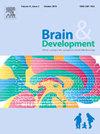日本儿科医生对脆性X综合征基因检测的认识和知识:一项针对发育迟缓/智力残疾儿科医生的全国调查
IF 1.3
4区 医学
Q4 CLINICAL NEUROLOGY
引用次数: 0
摘要
脆性X染色体综合征(FXS)通常会导致发育迟缓、智力残疾和自闭症谱系障碍。尽管自2016年以来,基因检测已经提供,并被纳入日本的国民健康保险,但诊断为FXS的病例数量仍然很低。本研究旨在探讨日本处理发育迟缓/智力残疾的儿科医生,特别是有和没有临床遗传学认证(或有FXS临床经验)的儿科医生对FXS的认识和理解水平。方法对来自日本儿科神经学会的1217名儿科神经科医师和367名日本儿科遗传学学会会员进行调查。额外的参与者是从1469名儿科神经科医生的在线邮件列表中招募的。该调查包括人口统计、FXS知识和基因检测实践等问题。采用卡方检验和Fisher精确检验对反应进行分析,p值<;0.05认为具有统计学意义。结果在386名受访者中,326人有订购某种基因检测的经验,其中包括78名经过认证的临床遗传学家。临床遗传学家和非遗传学专家之间存在显著的知识差距。虽然20%的非基因专家不知道保险覆盖的FXS基因检测,但在有FXS病例临床经验的人中,这一比例较低。许多受访者,无论是否获得认证,都难以确定要求FXS基因检测的适应症。此外,非遗传专家报告说,由于母亲的心理负担,提供遗传咨询更加困难。结论本研究强调了在日本儿科医生中扩大FXS教育和培训的必要性。解决这些知识差距可能会提高FXS的诊断率,并改善对受影响个人和家庭的管理。今后应加强临床遗传学家与普通儿科医生的合作,建立可靠的遗传咨询支持系统。本文章由计算机程序翻译,如有差异,请以英文原文为准。
Awareness and knowledge of pediatricians regarding genetic testing for Fragile X syndrome in Japan: A National Survey of Pediatricians Managing Developmental Delay/Intellectual disability
Background
Fragile X syndrome (FXS) commonly cause developmental delay, intellectual disability, and autism spectrum disorder. Although genetic testing has been available and included in Japan's national health insurance since 2016, the number of cases diagnosed with FXS remains low. This study aimed to explore the levels of awareness and understanding of FXS among pediatricians managing developmental delay/ intellectual disability in Japan, particularly between pediatrician with and without clinical genetics certification (or clinical experience with FXS).
Methods
A survey involving 1217 certified pediatric neurologists from the Japanese Society of Pediatric Neurology and 367 members of the Japanese Society of Pediatric Genetics was conducted. Additional participants were recruited from an online mailing list of 1469 pediatric neurologists. The survey comprised questions on demographics, knowledge about FXS, and genetic testing practices. The responses were analyzed using Chi-square and Fisher's exact tests, and a p-value <0.05 was considered statistically significant.
Results
Out of 386 respondents, 326 had experience ordering some kind of genetic testing, including 78 certified clinical geneticists. Knowledge gaps were significant between clinical geneticists and non-genetic specialists. While 20 % of non-genetic specialists were unaware of insurance-covered FXS genetic testing, this percentage was lower among those with clinical experience in FXS cases. Many respondents, irrespective of certification, struggled to determine the indications for requesting FXS genetic testing. Furthermore, non-genetic specialists reported more difficulty providing genetic counseling owing to the psychological burden on mothers.
Conclusion
This study highlights the necessity for expanding education and training on FXS among pediatricians in Japan. Addressing these knowledge gaps may enhance FXS diagnostic rates and improve the management of affected individuals and families. Future efforts should focus on strengthening the collaboration between clinical geneticists and general pediatricians and establishing reliable genetic counseling support systems.
求助全文
通过发布文献求助,成功后即可免费获取论文全文。
去求助
来源期刊

Brain & Development
医学-临床神经学
CiteScore
3.60
自引率
0.00%
发文量
153
审稿时长
50 days
期刊介绍:
Brain and Development (ISSN 0387-7604) is the Official Journal of the Japanese Society of Child Neurology, and is aimed to promote clinical child neurology and developmental neuroscience.
The journal is devoted to publishing Review Articles, Full Length Original Papers, Case Reports and Letters to the Editor in the field of Child Neurology and related sciences. Proceedings of meetings, and professional announcements will be published at the Editor''s discretion. Letters concerning articles published in Brain and Development and other relevant issues are also welcome.
 求助内容:
求助内容: 应助结果提醒方式:
应助结果提醒方式:


